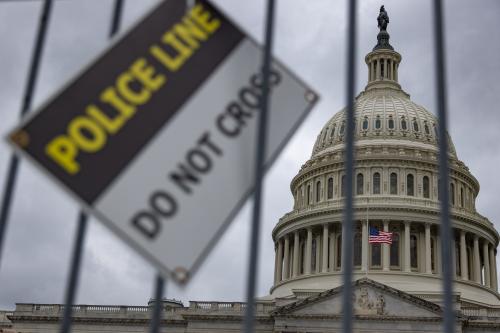Editor’s note: Richard Joseph reflects on Nigeria’s potential and political failures in a radio interview with WBEZ 91.5.
Jerome McDonnell, WBEZ: Last night in Lagos, Nigeria, statesmen, politicians, scientists, lawyers, and civil society groups gathered at a conference that compared the second republic with the current dispensation. They warned that Nigeria was in danger of sinking unless governments at the federal and state level tackled mounting challenges such as corruption, failed infrastructure and economic inequities. The conference also addressed the disaffected youth of the country. Nigeria’s youth has drawn global attention to Umar Farouk Abdulmutallab, known as the underwear bomber. He pleaded guilty Wednesday to eight charges, including conspiracy to commit terrorism and attempted use of a weapon of mass destruction, this for his attempted 2009 Christmas Day bombing of an airplane over Detroit. The conference was also a chance to honor Professor Richard Joseph’s landmark book Democracy and Prebendal Politics in Nigeria: The Fall of the Second Republic. Richard Joseph is the John Evans professor of international history and politics at Northwestern University. The work documented how political leaders squandered an opportunity to positively transform the country.
Richard Joseph: I went to Nigeria in February of 1976. Nigeria at that time was launched on a transition to civilian rule as a military government led by Obasanjo, who came back later on as a civilian president. I found myself very fortunate, teaching at what was then a premier university in Nigeria, University of Ibadan. I was going to write this book on the making of the second republic. And so I set about doing that. And on the course of following the emergence of the political parties, constitution making, and so on, I realized this was going to be a lot more complicated.
Jerome McDonnell, WBEZ: What was the problem?
Richard Joseph: Well, the problem was that Nigeria at the time was going through what was called the oil boom. Nigeria had ended its civil war in 1970. And so we’re now at a point where Nigeria is having several years of very high oil income especially after the 1973 jump. So I arrived in Nigeria at a time when Nigeria felt like, you know—
Jerome McDonnell, WBEZ: Like a million bucks?
Richard Joseph: Absolutely. And in fact, the breakthrough for me in fact was an article I wrote eighteen months after I arrived in Nigeria called Affluence and Underdevelopment: The Nigerian Experience. That was published in 1978. And that book is where I really said, guys, you know, there’s a lot of money coming in here, but I’m not seeing a growth in development process. So, studying the making of the second republic, and so on, I had an eureka moment and that eureka moment was making this connection between how Nigerians thought about politics, how they thought about power, in all institutions including university institutions. And the way in which they were going about fashioning this second republic. And that eureka moment was what we now know as prebendal politics.
Listen to the full interview at WBEZ.org »



Commentary
Nigeria’s Potential and Political Failures
October 31, 2011